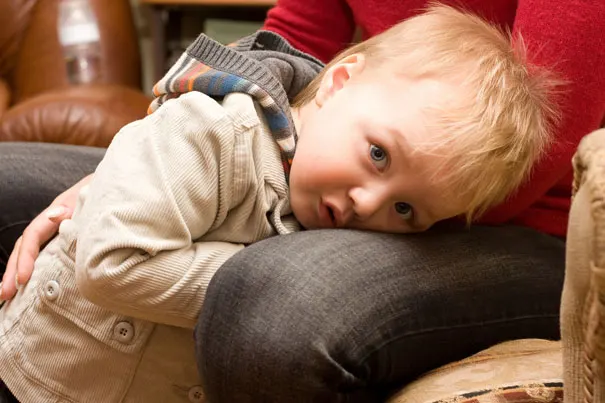How To Help a Child Who is Shy
What exactly causes shyness? How can we help a child overcome these feelings?
Causes of Shyness
Researchers have found two apparent pathways to shyness.
Biological. About one in five children seems to be born with a biological predisposition toward timidity. From the time they're toddlers – and sometimes even earlier – these children are uncomfortable with new people and new environments. Shy children tend to be finicky eaters who avoid trying new foods and who are reluctant to take on new challenges. Half the toddlers who show this pattern are still shy when they're six years old; a quarter are still shy as adolescents and are likely to remain somewhat shy their entire lives.
Situational. For these children, shyness is a temporary reaction to stress. A parent's illness, a move to a new home or a change in childcare can trigger shyness in a toddler or preschooler – even in an older child. Shyness usually disappears as soon as the underlying situation is resolved or the child becomes more comfortable.
Helping the Shy Child
Shy children can benefit from a variety of things that help improve their self-confidence and social skills. Here are some suggestions:
Be supportive. Remember that when dealing with a shy child your attitude should be one of gentle and supportive encouragement rather than pushing. Shy children are easily emotionally overwhelmed.
She's not “just shy”. Try not to say things like "Sarah's just shy" when she behaves that way – especially not in front of Sarah, who may come to believe that her behavior is a trait and not a temporary state. Toddlers and preschoolers also may interpret that label as a legitimate excuse for getting out of uncomfortable social situations. Instead, say something like "Sarah has trouble meeting new people, but she's working on it."
No teasing. Don't tease your child about her shyness. This will simply embarrass her and make the problem worse.
Practice. Rehearse stressful social activities at home. For some preschoolers, the combination of new people, new surroundings, and new activities is overwhelming. If, for example, your child is uncomfortable singing a song with other children in preschool, help her practice doing it with you at home. That practice will help make singing at school less frightening and more fun.
Baby steps. Try not to overwhelm your child with too much company or too much stimulation. Shy children are often more comfortable playing with one friend at a time instead of with a group of friends. Don't force her into large group activities.
Taking the lead. Encourage a shy child to play occasionally with another child who's a year or two younger. This puts the shy child into a leadership position, which is something she seldom feels with peers. It also may give her more confidence when she plays with children her own age.
While shyness is usually nothing to worry about, encouraging this early on will help your child build her social skills as she reaches school-going age.
Join Pampers Club and get:




